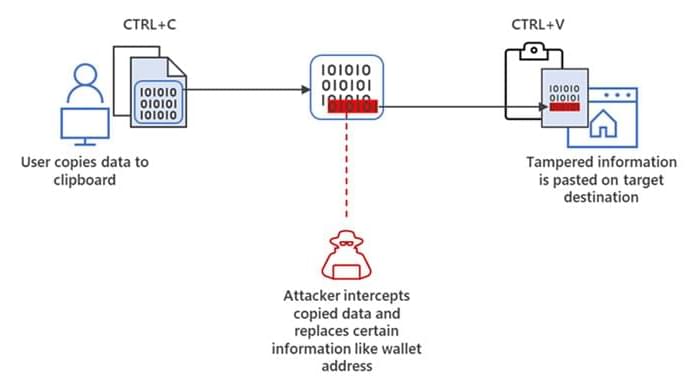A 36-year-old Florida man was sentenced by a Manhattan federal court to six months of home detention for knowingly allowing his cryptocurrency trading platform to act as a money laundering tool, the Department of Justice announced Friday.


TWITTER https://twitter.com/Transhumanian.
PATREON https://www.patreon.com/transhumania.
BITCOIN 14ZMLNppEdZCN4bu8FB1BwDaxbWteQKs8i.
BITCOIN CASH 1LhXJjN4FrfJh8LywR3dLG2uGXSaZjey9f.
ETHEREUM 0x1f89b261562C8D4C14aA01590EB42b2378572164
LITECOIN LdB94n8sTUXBto5ZKt82YhEsEmxomFGz3j.
CHAINLINK 0xDF560E12fF416eC2D4BAECC66E323C56af2f6666.
KEYWORDS: science, technology, philosophy, futurism, moravec transfer, mind-uploading.

Microsoft warns of “cryware” malware that steals information and exfiltrate data directly from non-custodial cryptocurrency wallets.
Microsoft is warning of an emerging threat targeting internet-connected cryptocurrency wallets, signaling a departure in the use of digital coins in cyberattacks.
The tech giant dubbed the new threat “cryware,” with the attacks resulting in the irreversible theft of virtual currencies by means of fraudulent transfers to an adversary-controlled wallet.
“Cryware are information stealers that collect and exfiltrate data directly from non-custodial cryptocurrency wallets, also known as hot wallets,” Berman Enconado and Laurie Kirk of the Microsoft 365 Defender Research Team said in a new report.
Cutting-edge computer technology designed to mimic the human brain is being used by hackers to create lifelike videos of celebrities and politicians. But now, bad actors are using this readily available tech to target everyday social media users in cryptocurrency scams.


The U.S. Department of Treasury today sanctioned cryptocurrency mixer Blender.io used last month by the North Korean-backed Lazarus hacking group to launder funds stolen from Axie Infinity’s Ronin bridge.
In the wake of the attack, Sky Mavis (the bridge’s creator) revealed that hackers breached the Ronin bridge on March 23 to steal 173,600 Ethereum and 25.5M USDC tokens in two transactions worth $617 million at the time, the largest cryptocurrency hack in history.
The previous most significant theft of cryptocurrency was the $611 million Poly Network hack in August 2021.



Crypto’s biggest skeptics see plenty of reasons to criticize the industry, but generally at the heart of most complaints is a belief that crypto is contributing very little to society while burning massive amounts of energy.
While crypto’s believers could squabble over the former point until they’re blue in the face, the latter is a little harder to deny. Bitcoin uses an estimated 204.50 terawatt-hours (TWh) of electricity per year at current rates according to the oft-cited tracker built by Digiconomist, this number is equal to the power consumption of Thailand. Meanwhile Ethereum’s energy footprint is half the size but still comparable to the power consumption of Kazakhstan. In 2018 the United States reported its total consumption of electricity as 4,222.5 TWh.
For some legislators, those numbers are hard to swallow. This week, the New York State Assembly passed a bill that had team crypto up in arms. The bill blocks the formation of crypto mining firms in the state that rely on non-renewable power. It notably doesn’t apply to existing facilities. A corresponding bill is currently making its way through the Democrat-controlled state senate. everyone, and welcome back to Chain Reaction.

Decentralized finance is built on blockchain technology, an immutable system that organizes data into blocks that are chained together and stored in hundreds of thousands of nodes or computers belonging to other members of the network.
These nodes communicate with one another (peer-to-peer), exchanging information to ensure that they’re all up-to-date and validating transactions, usually through proof-of-work or proof-of-stake. The first term is used when a member of the network is required to solve an arbitrary mathematical puzzle to add a block to the blockchain, while proof-of-stake is when users set aside some cryptocurrency as collateral, giving them a chance to be selected at random as a validator.
To encourage people to help keep the system running, those who are selected to be validators are given cryptocurrency as a reward for verifying transactions. This process is popularly known as mining and has not only helped remove central entities like banks from the equation, but it also has allowed DeFi to open more opportunities. In traditional finance, are only offered to large organizations, for members of the network to make a profit. And by using network validators, DeFi has also been able to cut down the costs that intermediaries charge so that management fees don’t eat away a significant part of investors’ returns.